REVISION QUESTION BANK PDF

| Title | REVISION QUESTION BANK |
|---|---|
| Pages | 134 |
| File Size | 3.9 MB |
| File Type | |
| Total Downloads | 517 |
| Total Views | 649 |
Summary
June 2015 Edition E PL REVISION QUESTION BANK ACCA Paper F7 | FINANCIAL REPORTING M SA Becker Professional Education has more than 20 years of experience providing lectures and learning tools for ACCA Professional Qualifications. We offer ACCA candidates high-quality study materials to maximise thei...
Description
PL
E
June 2015 Edition
REVISION QUESTION BANK
ACCA
SA
M
Paper F7 | FINANCIAL REPORTING
Becker Professional Education has more than 20 years of experience providing lectures and learning tools for ACCA Professional Qualifications. We offer ACCA candidates high-quality study materials to maximise their chances of success.
Becker Professional Education, a global leader in professional education, has been developing study materials for ACCA for more than 20 years, and thousands of candidates studying for the ACCA Qualification have succeeded in their professional examinations through its Platinum and Gold ALP training centers in Central and Eastern Europe and Central Asia.* Becker Professional Education has also been awarded ACCA Approved Content Provider Status for materials for the Diploma in International Financial Reporting (DipIFR). Nearly half a million professionals have advanced their careers through Becker Professional Education's courses. Throughout its more than 50-year history, Becker has earned a strong track record of student success through world-class teaching, curriculum and learning tools.
PL
*Platinum – Moscow, Russia and Kiev, Ukraine. Gold – Almaty, Kazakhstan
E
We provide a single destination for individuals and companies in need of global accounting certifications and continuing professional education.
Becker Professional Education's ACCA Study Materials
All of Becker’s materials are authored by experienced ACCA lecturers and are used in the delivery of classroom courses.
M
Study System: Gives complete coverage of the syllabus with a focus on learning outcomes. It is designed to be used both as a reference text and as part of integrated study. It also includes the ACCA Syllabus and Study Guide, exam advice and commentaries and a Study Question Bank containing practice questions relating to each topic covered. Revision Question Bank: Exam style and standard questions together with comprehensive answers to support and prepare students for their exams. The Revision Question Bank also includes past examination questions (updated where relevant), model answers and alternative solutions and tutorial notes.
SA
Revision Essentials*: A condensed, easy-to-use aid to revision containing essential technical content and exam guidance. *Revision Essentials are substantially derived from content reviewed by ACCA’s examining team.
®
E
PL
ACCA
PAPER F7
SA M
FINANCIAL REPORTING
REVISION QUESTION BANK
For Examinations to June 2015
®
©2014 DeVry/Becker Educational Development Corp. All rights reserved.
(i)
No responsibility for loss occasioned to any person acting or refraining from action as a result of any material in this publication can be accepted by the author, editor or publisher. This training material has been prepared and published by Becker Professional Development International Limited: 16 Elmtree Road Teddington TW11 8ST United Kingdom
E
Copyright ©2014 DeVry/Becker Educational Development Corp. All rights reserved. The trademarks used herein are owned by DeVry/Becker Educational Development Corp. or their respective owners and may not be used without permission from the owner.
SA M
PL
No part of this training material may be translated, reprinted or reproduced or utilised in any form either in whole or in part or by any electronic, mechanical or other means, now known or hereafter invented, including photocopying and recording, or in any information storage and retrieval system without express written permission. Request for permission or further information should be addressed to the Permissions Department, DeVry/Becker Educational Development Corp.
Acknowledgement
Past ACCA examination questions are the copyright of the Association of Chartered Certified Accountants and have been reproduced by kind permission.
(ii)
©2014 DeVry/Becker Educational Development Corp. All rights reserved.
REVISION QUESTION BANK – FINANCIAL REPORTING (F7) CONTENTS Question
Page
Answer
Marks Date worked
1 2 4 6 8 10 11 15 17 19 21 22 23
1001 1001 1002 1002 1003 1003 1003 1004 1006 1007 1007 1008 1008
14 18 10 18 12 10 28 10 18 12 12 10 20
26 27 29
1009 1009 1010
10 10 10
31 33 35 37 39 41 42 45 48 51 53 55 58
1011 1011 1012 1013 1014 1014 1015 1016 1017 1019 1019 1021 1022
16 12 12 18 10 10 18 18 22 12 14 22 22
MULTIPLE CHOICE QUESTIONS
15 16 17
E
SA M
18 19 20 21 22 23 24 25 26 27 28 29
International Financial Reporting Standards Conceptual Framework Substance over Form IAS 1 Presentation of Financial Statements Accounting Policies IAS 18 Revenue Inventory and Biological Assets IAS 11 Construction Contracts IAS 16 Property, Plant and Equipment IAS 23 Borrowing Costs Government Grants IAS 40 Investment Properties IAS 38 Intangible Assets Non-current Assets Held for Sale and Discontinued Operations IAS 36 Impairment of Assets IAS 17 Leases IAS 37 Provisions, Contingent Liabilities and Contingent Assets IAS 10 Events after the Reporting Period IAS 12 Income Taxes Financial Instruments Regulatory Framework Consolidated Statement of Financial Position Consolidation Adjustments Further Consolidation Adjustments Consolidated Statement of Comprehensive Income Investments in Associates Analysis and Interpretation IAS 7 Statement of Cash Flows IAS 33 Earnings per Share
PL
1 2 3 4 5 6 7 8 9 10 11 12 13 14
Section B of the Examination will include two 15 mark questions and one 30 mark question as shown in the Specimen Exam reproduced in this Revision Question Bank. Questions with different mark allocations are not current exam style but provided for additional syllabus coverage. INTERNATIONAL FINANCIAL REPORTING STANDARDS 1
Standard setting process (ACCA D04 adapted)
63
1025
15
63 63
1026 1027
15 15
65
1029
15
CONCEPTUAL FRAMEWORK 2 3
Period of inflation Rebound (ACCA J11)
SUBSTANCE OVER FORM 4
Wardle (ACCA J10)
©2014 DeVry/Becker Educational Development Corp. All rights reserved.
(iii)
FINANCIAL REPORTING (F7) – REVISION QUESTION BANK Question
Page
Answer
Marks Date worked
66 68 70 72 74
1031 1032 1036 1040 1043
15 30 30 30 30
76 77
1047 1048
15 15
78
1050
15
IAS 1 PRESENTATION OF FINANCIAL STATEMENTS 5 6 7 8 9
Dexon (ACCA J08 adapted) Pricewell (ACCA J09 adapted) Sandown (ACCA D09 adapted) Cavern (ACCA D10 adapted) Highwood (ACCA J11 adapted)
ACCOUNTING POLICIES Emerald (ACCA D07 adapted) Tunshill (ACCA D10)
E
10 11
IAS 18 REVENUE Derringdo (ACCA J03 adapted)
PL
12
IAS 11 CONSTRUCTION CONTRACTS 13 14
Linnet (ACCA J04) Mocca (ACCA J11)
79 80
1052 1054
15 10
81 81
1055 1056
10 10
82
1057
15
83
1059
15
84 85
1060 1062
15 15
86
1063
10
86
1064
15
87
1066
15
IAS 16 PROPERTY, PLANT AND EQUIPMENT 15 16
Dearing (ACCA D08) Flightline(ACCA J09)
SA M
IAS 20 ACCOUNTING FOR GOVERNMENT GRANTS 17
Baxen (ACCA J12 adapted)
IAS 23 BORROWING COSTS 18
Apex (ACCA J10 adapted)
IAS 38 INTANGIBLE ASSETS 19 20
IFRS 5 21
Dexterity (ACCA J04 adapted) Darby (ACCA D09)
DISCONTINUED OPERATIONS Manco (ACCA D10)
IAS 36 IMPAIRMENT OF ASSETS 22
Wilderness (ACCA D05 adapted)
IAS 17 LEASES 23
(iv)
Fino (ACCA D07)
©2014 DeVry/Becker Educational Development Corp. All rights reserved.
REVISION QUESTION BANK – FINANCIAL REPORTING (F7) Question
Page
Answer
Marks Date worked
88 88
1068 1069
15 15
89
1070
15
IAS 37 PROVISIONS 24 25
Promoil (ACCA D08) Borough (ACCA D11)
IAS 10 EVENTS AFTER THE REPORTING PERIOD 26
Waxwork (ACCA J09)
27 28
Pingway (ACCA J08 adapted) Bertrand (ACCA D11)
GROUP ACCOUNTS Parentis (ACCA J07 adapted) Patronic (ACCA J08 adapted) Pedantic (ACCA D08) Pacemaker (ACCA J09 adapted) Pandar (ACCA D09 adapted) Premier (ACCA D10 adapted) Prodigal (ACCA J11 adapted) Paladin (ACCA D11)
90 91
1071 1073
15 10
91 93 95 97 99 101 103 104
1074 1077 1079 1082 1085 1087 1091 1093
30 15 30 30 25 30 20 25
106 109 111
1095 1098 1100
30 20 25
114 116
1102 1104
15 15
118 119
1106 1107
15 10
120 121 122
1108 1110 1112
15 15 15
PL
29 30 31 32 33 34 35 36
E
FINANCIAL INSTRUMENTS
ANALYSIS AND INTERPRETATION
Harbin (ACCA D07 adapted) Victular (ACCA D08 adapted) Hardy (ACCA D10)
SA M
37 38 39
IAS 7 STATEMENT OF CASH FLOWS 40 41
Crosswire (ACCA D09 adapted) Deltoid (ACCA J10 adapted)
IAS 33 EARNINGS PER SHARE 42 43
Savoir (ACCA J06) Barstead (ACCA D09)
COMPOSITE IFRS QUESTIONS 44 45 46
Toogood (ACCA J07 adapted) Errsea I (ACCA J07 adapted) Errsea II (ACCA J07 adapted)
©2014 DeVry/Becker Educational Development Corp. All rights reserved.
(v)
FINANCIAL REPORTING (F7) – REVISION QUESTION BANK Question
Page
Answer
Marks Date worked
123 125 127
1114 1118 1120
30 15 15
129
1122
15
June 2012 1 Pyramid (see Specimen Exam) 2 Fresco (adapted) 3 Tangier (adapted) 4 Telepath December 2012 1 Viagem (adapted) 2 Quincy (see Specimen Exam) 3 Quartile (adapted) 4 Lobden (adapted) 5 Shawler
E
RECENT EXAMS
130 131 133
1123 1124 1126
15 15 15
135 136 138 140 142
1128 1130 1134 1135 1136
15 30 15 15 15
143 145 146 148 150 151
1138 1141 1144 1145 1148 1149
30 15 15 15 15 15
Multiple Choice Questions
2
17
40
Tangier Pyramid Quincy
8 10 12
19 20 21
15 15 30
PL
June 2013 1 Paradigm (adapted) 2 Atlas (adapted) 3A Monty I (adapted) 3B Monty II (adapted) 4 Radar 5 Not reproduced
SA M
December 2013 1 Polestar (adapted) 2 Moby (adapted) 3A Kingdom I (adapted) 3B Kingdom II (adapted) 4 Laidlaw (adapted) 5 Fundo SPECIMEN EXAMINATION Section A Section B 1 2 3
(vi)
©2014 DeVry/Becker Educational Development Corp. All rights reserved.
REVISION QUESTION BANK MCQ – FINANCIAL REPORTING (F7) 1
INTERNATIONAL FINANCIAL REPORTING STANDARDS
1.1
Which ONE of the following is NOT a function of the IASB? A B C D
Which ONE of the following is NOT part of the process of developing a new International Financial Reporting Standard?
1.3
Whose needs are general purpose financial statements intended to meet? A B C D
1.4
Issuing a discussion paper that sets out the possible options for a new standard Publishing clarification of an IFRS where conflicting interpretations have developed Drafting an IFRS for public comment Analysing the feedback received on a discussion paper
E
A B C D
PL
1.2
Responsibility for all IFRS technical matters Publication of IFRSs Overall supervisory body of the IFRS organisations Final approval of interpretations by the IFRS Interpretations Committee
Shareholders of incorporated entities The general public Users of financial statements Regulatory authorities
Which body develops International Financial Reporting Standards? IASB IFRS Foundation IFRS IC IFRS Advisory Council
SA M
A B C D
1.5
According to the International Accounting Standards Board, in whose interests are financial reporting standards issued? A B C D
1.6
Company directors The public Company auditors The government
The issue of a new IFRS means that:
(1) (2) (3) (4)
An existing standard may be partially or completely withdrawn. Issues that are not in the scope of an existing standard are covered. Issues raised by users of existing standards are explained and clarified. Current financial reporting practice is modified.
Which combination of the above will most likely be the result of issuing a new IFRS? A B C D
1, 2 and 3 only 2, 3 and 4 only 1, 3 and 4 only 1, 2 and 4 only
©2014 DeVry/Becker Educational Development Corp. All rights reserved.
1
FINANCIAL REPORTING (F7) – REVISION QUESTION BANK MCQ 1.7
Which ONE of the following is one of the “3Es” in the “value for money” concept? A B C D
Earnings Equity Evaluation Effectiveness (14 marks)
CONCEPTUAL FRAMEWORK
2.1
Which ONE of the following is stated as an underlying assumption according to the IASB’s Conceptual Framework for Financial Reporting? A B C D
The International Accounting Standards Board’s uses the Conceptual Framework for Financial Reporting (Framework) to assist in developing new standards.
PL
2.2
Neutrality Accruals Relevance Going concern
E
2
Which one of the following is NOT covered by the Framework? A B C D
An item meets the definition of an element in accordance with the Conceptual Framework for Financial Reporting.
SA M
2.3
The format of financial statements The objective of financial statements Concepts of capital maintenance The elements of financial statements
Which of the following criteria must be met for item to be recognised in the financial statements?
2
(1)
It is probable that any future economic benefit associated with the item will flow to or from the entity.
(2)
The item has a cost or value that can be measured with reliability.
(3)
The rights or obligations associated with the item are controlled by the reporting entity.
A B C D
1 only 2 only 1 and 2 only 1, 2 and 3
©2014 DeVry/Becker Educational Development Corp. All rights reserved.
REVISION QUESTION BANK MCQ – FINANCIAL REPORTING (F7)
Faithful representation means that the legal form of a transaction must be reflected in financial statements, regardless of the economic substance.
(2)
Under the recognition concept only items capable of being measured in monetary terms can be recognised in financial statements.
(3)
It may sometimes be necessary to exclude information that is relevant and reliable from financial statements because it is too difficult for some users to understand.
A B C D
1 only 2 only 3 only None of these statements
Which of the following statements are correct?
E
(1)
(1)
The money measurement concept requires all assets and liabilities to be accounted for at original (historical) cost.
(2)
Faithful representation means that the economic substance of a transaction should be reflected in the financial statements, not necessarily its legal form.
(3)
The realisation concept means that profits or gains cannot normally be recognised in the statement of profit or loss until cash has been received.
A B C D
1 and 2 only 1 and 3 only 2 and 3 only All three statements
SA M
2.5
Which of the following statements about the characteristics of financial information is correct?
PL
2.4
2.6
IFRS 13 Fair Value Measurement sets out a fair value hierarchy that categorises inputs into three levels. Which of the following inputs would have the highest authority? A B C D
2.7
Unobservable inputs Directly observable inputs other than quoted prices Quoted prices in active markets at the measurement date Market-corroborated inputs
The following are possible methods of measuring assets and liabilities other than historical cost: (1) (2) (3) (4)
Current cost Realisable value Present value Replacement cost
According to the IASB’s Conceptual Framework for Financial Reporting which of the measurement bases above can be used by an entity for measuring assets and liabilities shown in its statement of financial position? A B C D
1 and 2 only 1, 2 and 3 only 2 and 3 only All four
©2014 DeVry/Becker Educational Development Corp. All rights reserved.
3
FINANCIAL REPORTING (F7) – REVISION QUESTION BANK MCQ 2.8
The IASB’s Conceptual Framework for Financial Reporting identifies qualitative characteristics of financial statements.
Relevance Understandability Faithful representation Comparability
A B C D
1 and 2 only 1 and 3 only 2 and 4 only 3 and 4 only
Which of the following is the underlying assumption in the International Accounting Standards Board’s Conceptual Framework for Financial Reporting? A B C D
PL
2.9
(1) (2) (3) (4)
E
Which TWO of the following characteristics are fundamental qualitative characteristics according to the IASB’s Framework?
Accruals Reliability Going concern Relevance
(18 marks)
SUBSTANCE OVER FORM
3.1
In which of the following accounting treatments is the qualitative characteristic of faithful representation being applied?
SA M
3
A B C D
3.2
4
An asset is depreciated on the straight-line basis The costs of a patent are capitalised An asset acquired through a finance lease is capitalised by the buyer An allowance is made for irrecoverable trade receivables
Which of the following are examples of transactions which could be used to create “offbalance sheet finance”?
(1) (2) (3) (4)
Sale and repurchase arrangements Factoring of debts Warranty provisions Consignment inventories
A B C D
1, 2 and 3 2, 3 and 4 1, 3 and 4 1, 2 and 4
Similar Free PDFs
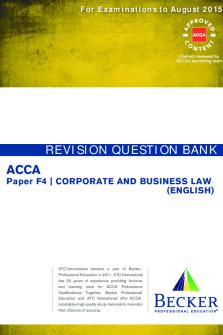
Revision Question Bank 60
- 154 Pages

REVISION QUESTION BANK
- 134 Pages

Revision Question BANK
- 77 Pages
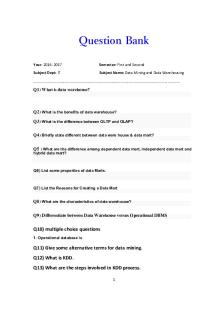
Dmdw-question bank - question bank
- 17 Pages

Revision Question N ANS
- 14 Pages

Question bank
- 8 Pages

F9FM Revision Question Practice
- 42 Pages
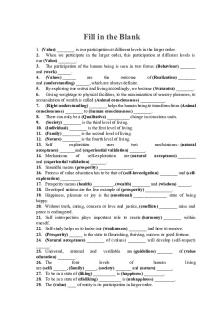
Question Bank 3question bank
- 6 Pages

Question BANK
- 19 Pages
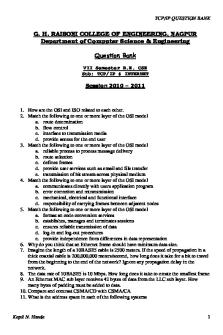
Tcp-ip-question-bank
- 25 Pages

Chapter 4 - Question Bank
- 28 Pages

DIP Question Bank Sheetal
- 14 Pages
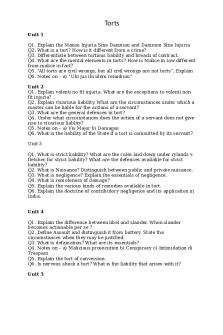
Torts Question Bank
- 2 Pages
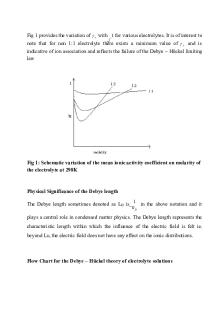
QB5 - Question Bank 5
- 104 Pages

Assessment Question Bank 1
- 22 Pages
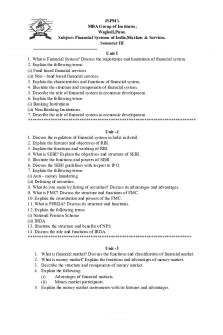
Fsims Question Bank
- 4 Pages
Popular Institutions
- Tinajero National High School - Annex
- Politeknik Caltex Riau
- Yokohama City University
- SGT University
- University of Al-Qadisiyah
- Divine Word College of Vigan
- Techniek College Rotterdam
- Universidade de Santiago
- Universiti Teknologi MARA Cawangan Johor Kampus Pasir Gudang
- Poltekkes Kemenkes Yogyakarta
- Baguio City National High School
- Colegio san marcos
- preparatoria uno
- Centro de Bachillerato Tecnológico Industrial y de Servicios No. 107
- Dalian Maritime University
- Quang Trung Secondary School
- Colegio Tecnológico en Informática
- Corporación Regional de Educación Superior
- Grupo CEDVA
- Dar Al Uloom University
- Centro de Estudios Preuniversitarios de la Universidad Nacional de Ingeniería
- 上智大学
- Aakash International School, Nuna Majara
- San Felipe Neri Catholic School
- Kang Chiao International School - New Taipei City
- Misamis Occidental National High School
- Institución Educativa Escuela Normal Juan Ladrilleros
- Kolehiyo ng Pantukan
- Batanes State College
- Instituto Continental
- Sekolah Menengah Kejuruan Kesehatan Kaltara (Tarakan)
- Colegio de La Inmaculada Concepcion - Cebu